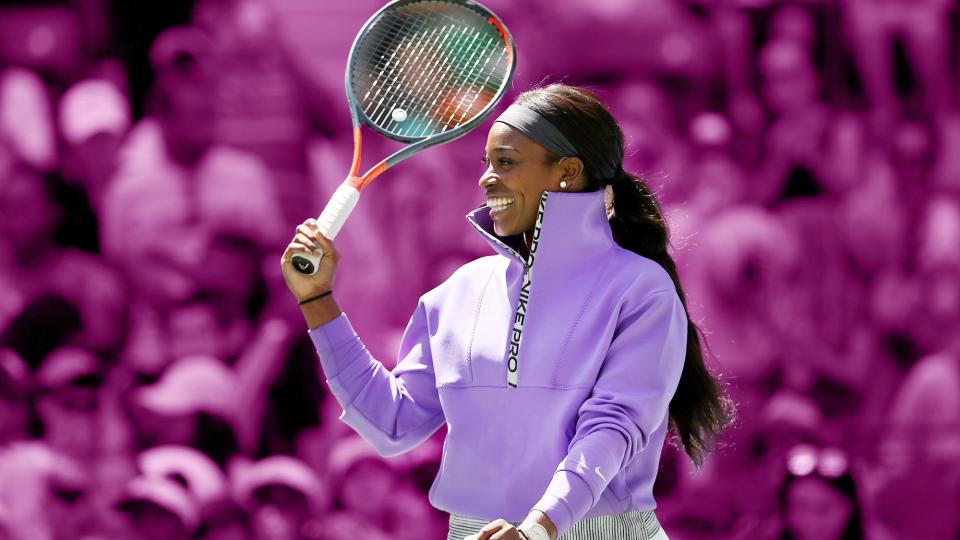The Simple, 5-Word Mantra Sloane Stephens Lives By
- Oops!Something went wrong.Please try again later.
Sloane Stephens truly needs no introduction out on the tennis court. While she's already played in the Olympics and become a U.S. Open champion (among other accomplishments), her storied career is still being written.
She recently stopped by :BLACKPRINT, the Black Employee Resource Group for Meredith Corporation (which owns Shape), for its virtual health and fitness expo to talk about how she maintains her champion mindset, what it's like being a racial minority in the tennis world, and how she's hoping to inspire the next generation.
It's no secret that many pro athletes have go-to mantras that help them maintain their motivation and focus. The relatable principle that Stephens follows to stay on top of her game? "It's not if, it's when." The meaning behind her life mantra is that it's not a question of if you will achieve what you're working toward, it's all just a matter of time.
"That applies to so many things in life," said Stephens. "I just feel like when you're waiting for something to happen, you don't know if it's going to happen. If you're stressed out, you don't know when it's going to be over, you don't know when your tough time is going to be over: It's not if, it's when. So that's my favorite one." (Related: How Sloane Stephens Recharges Off the Tennis Court)

Getty Images
Her mantra has definitely helped her along her tennis journey, especially while waiting for there to be consistent representation in the sport. "Growing up, playing tennis as an African American young woman, there [were] not that many people and players who looked like me," she shared. The tennis pro said she went to several different tennis academies between the ages of 10 to 16, but no matter where she went, the lack of diversity stayed pretty much the same. Eventually, thanks to the rising success and stardom of Black tennis players such as Venus Williams, Serena Williams, and Chanda Rubin, she could see herself in the game.
Today, there are even more Black players paving the way for future athletes — including Stephens herself. With the likes of Naomi Osaka and Coco Gauff steadily on the rise, Stephens thinks the sport is on the right path for children to see themselves on the tennis court. "As [we] have grown up, built up, and worked on [our] games, it's all kind of come together," she said. "It's different for the kids who are younger than myself because there's so many of us, and we all look different, and we're all a sense of representation." (Related: How to Create an Inclusive Environment In the Wellness Space)
As Black tennis players continue to gain more visibility, Stephens has also been pushing for this change herself, namely through her namesake, the Sloane Stephens Foundation, a charitable organization serving underrepresented youth in Compton, California. The foundation is striving to "cultivate a new generation of tennis players" by encouraging healthy lifestyles, proper nutrition, and participation in physical fitness activities. Stephens explained that her foundation's team is also working to shift the popular narrative that tennis can only be for people with a lot of money.
"I love seeing young girls and young kids being like, 'I play tennis because of you' or 'I watched you on TV,'" she said. "You can really do so many things if you play tennis, [or even] if you're just interested in tennis [like working at a sports network]... Giving those kids the opportunity to use tennis as a vehicle is really important."

